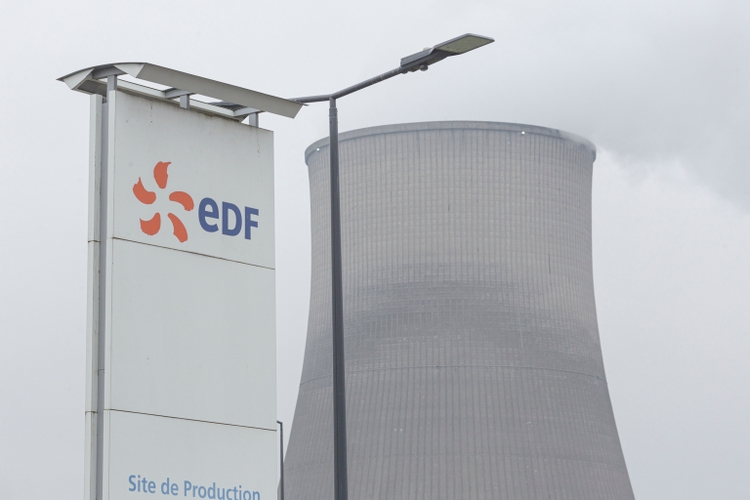
Sam Tarling
Electricité de France S.A. (OTCPK:ECIFF) is going to be nationalised at 12 EUR per share. It is still in the early stages, but it is all but confirmed. Without any more payouts coming or earnings reports expected as a publicly listed entity, there’s nothing more for investors to see here, and the decision to hold at this point should only be for technical reasons related to timing of realizations of capital gains for tax reasons, if any advantages (consult an advisor) in your country of residence applies. The upshot though is a consideration about nuclear, which is the fleet that EDF operates and supplies 70% of French power. The nationalization lends strong credence to the Uranium thesis.
EDF Gets Nationalized: Process and Shareholder Upshots
American investors might get shocked by the nationalization concept, since it’s more common in Europe than the US. It’s not a communist appropriation, it’s a tender offer on public markets. With EDF already being 84% state owned, it’s basically a formality to just payout the remaining minority holders with float and the convertible instruments. 9.7 billion EUR is currently being secured by Parliament as the nationalization still needs to pass into law and this will result in a 12 EUR per share tender offer.
That’s the first step of the process. Once it does that, the market authorities get involved, which of course is mostly a formality, and then the board would have to agree upon the 12 EUR per share price and give their recommendation, which in this case we already know to be positive because a fairness opinion has already been secured, the government already controls the company, and pending parliamentary approval the transaction has been informally closed.
There are no further earnings expected after the last one, and there is no more dividend expected either. Investors should only hold for tax considerations, so talk to an advisor for that if any tax considerations apply for holding out a little longer even though nothing more should happen in the price.
Are shareholders getting shortchanged here? Not really. EDF is more than 80% a nuclear generator in terms of terms of terawatt hours, which means massive provisions for decommissioning of plants which will all (save one) be in effect by 2028. That’s a big liability and there’s not that long of a cash horizon left, although it could have unexpectedly grown because even anti-nuclear jurisdictions are extending nuclear power plant lives. There’s more, which is that EDF’s nuclear division has been suffering on droughts limiting water cooling ability, and there were protracted maintenance issues that caused output to drop about 20% from nuclear assets due to reactor corrosion. This has caused outages in France, and forced EDF into terrible results by having to unexpectedly buy energy as an import where it is usually a net exporter. The droughts have also directly affected the hydrology situation. The company is valued at about 5.5x EV/EBITDA. Considering the provisions in particular which account for 25% of assets, and where assets are derived from plants that are on the out, it’s not an easy situation. With corrosion of reactors being a major issue as well and likely a source of more headaches, it’s best to let the government deal with it.
Conclusions
As far as the EDF shareholder goes, there’s nothing to be done at this point, and it’s unlikely you’ve been short-changed by this nationalization.
If you were invested in EDF because of your belief in Uranium and nuclear, you should be pleased with this outcome. Part of the logic of the nationalization is that now the government is the only stakeholder to the company, and can take full responsibility for the renewable transition. This will include more renewable capacity investment, but also an acknowledgement that nuclear has been underinvested for years. The fact that the government feels the need to take control of these assets is likely because they do not want to risk market failure with respect to nuclear. In our opinion, the eschewing of nuclear, an almost unlimited source of energy that we’ve known about for 80 years, represents an extraordinary failure in market judgment, especially since the distrust of nuclear energy stems substantially from Chernobyl, where disaster was a consequence of bureaucracy, corruption and total negligence. The EDF nuclear fleet is essentially being explicitly seen as an essential strategic resource of utmost national interest with this nationalization bid.
The upshot is that investors might want to continue to look into nuclear as a way of investing in energy. While investing in nuclear fleets being operated by companies is somewhat speculative, since in most cases you’d be betting on nations extending the life of their plants beyond what markets and the valuation of provisions have accounted for, you could consider an investment in Uranium. Because the fixed costs of nuclear are so substantial, the economics of a plant have very little to do with the price of Uranium. In other words, Uranium is profit inelastic in price. There are ETFs and physical trusts, just watch to keep expense ratios low.


Be the first to comment